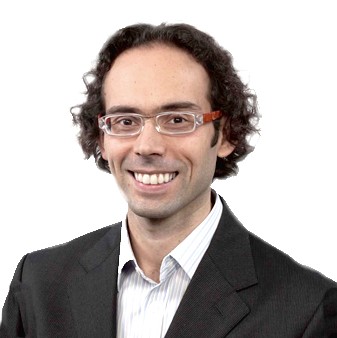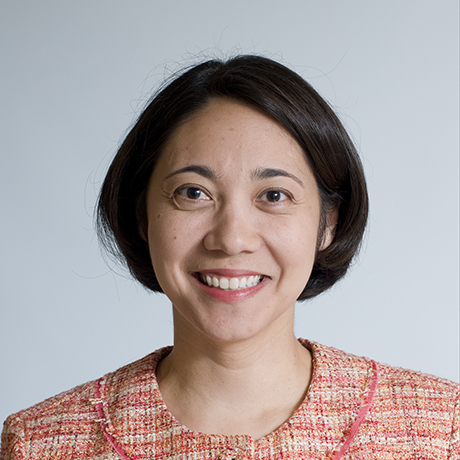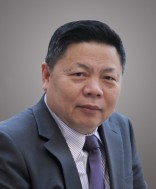touchEXPERT OPINIONS Progress in EGFR-mutant NSCLC: Where are we going?
Watch leading non-small cell lung cancer (NSCLC) experts discuss the current standard and the latest advancements in epithelial growth factor receptor (EGFR)-targeted therapy.
Dr Califano presents the most recent data on the use of epithelial growth factor receptor (EGFR) tyrosine kinase inhibitors (TKIs) in lung cancer therapy and the potential for combination therapies.
1/3 Next InterviewIn this interview, Dr Raffaele Califano answers the following questions:
- Is conventional EGFR-TKI monotherapy the best strategy as first-line treatment for NSCLC?
- Can we improve outcomes using combination EGFR-TKI plus VEGF inhibitors?
- Should chemotherapy be combined upfront with EGFR-TKIs?
- Is there a role for immune checkpoint inhibitors in the treatment of newly-diagnosed patients with EGFR-mutant NSCLC?
Dr Raffaele Califano works as Consultant Medical Oncologist at The Christie Hospital and Manchester University Hospital, both in Manchester, UK. He is also an Honorary Senior Lecturer in Cancer Sciences at The University of Manchester. Dr Califano has special interest in thoracic malignancies and clinical cancer research and he is an active member of the Manchester Lung Cancer Group.
Dr Califano has been an investigator for several phase Ib–III clinical trials, developing a particular interest for molecularly-driven clinical trials in advanced non-small cell lung cancer, small cell lung cancer and mesothelioma. Dr Califano has a research focus on immunotherapy and oncogenic-driven lung cancer.
Dr Califano serves as Member of the European Society of Medical Oncology (ESMO) Educational Publishing Working Group. He is also a member of the British Thoracic Oncology Group (BTOG) and International Association for the Study of Lung Cancer (IASLC).
Dr Califano is the author of several papers published in indexed, peer-reviewed, international journals, and he has been an invited speaker to several national and international oncology meetings.
Dr Raffaele Califano discloses: Honoraria and consultancy fees from AstraZeneca, Boehringer Ingelheim, Bristol Myers Squibb, Lilly Oncology, Merck Sharp & Dohme, Novartis, Pfizer, Roche and Takeda; Grants paid to institution for conduct of clinical trials or contracted research AbbVie, AstraZeneca, Bristol Myers Squibb, Clovis, Lilly Oncology, Merck Sharp & Dohme, Novartis, Pfizer, Roche and Takeda; Stock ownership The Christie Private Care; Non-remunerated activities Principal investigator for trials with AbbVie, AstraZeneca, Bristol Myers Squibb, Clovis, Lilly Oncology, Merck Sharp & Dohme, Novartis, Pfizer, Roche and Takeda.
Dr Sequist describes the landscape of mechanisms of resistance to epithelial growth factor receptor (EGFR) tyrosine kinase inhibitors (TKIs), and how recent clinical trials may inform therapeutic choices when EGFR-TKI resistance occurs.
2/3 Next InterviewIn this interview, Dr Lecia Sequist answers the following questions:
- What are the most common mechanisms of resistance following first-line EGFR-TKI therapy?
- How do you approach a patient who has a targetable mutation following first-line osimertinib?
- What is the significance of C797S mutation after treatment with osimertinib?
- What is on the horizon for other rare bypass disorders?
- What if the patient doesn’t have a targetable mutation?
Dr Lecia Sequist is the Landry Family Professor of Medicine at Harvard Medical School and the Director of the Center for Innovation in Early Cancer Detection at Massachusetts General Hospital.
She joined the faculty at the Massachusetts General Hospital Cancer Center in 2005 and has an active clinical and translational research career, as well as a busy practice caring for patients with lung cancer. She has held grants from the National Institute of Health, the Department of Defense and many private foundations.
Dr Sequist’s research focuses on studying targeted therapeutics for lung cancer and bringing new non-invasive tests like circulating tumour cells and circulating tumour DNA to treat and detect lung cancer.
Dr Lecia Sequist discloses: Advisory board fees from AstraZeneca, Genentech and Janssen Pharmaceuticals; Institutional research funding from AstraZeneca, Boehringer Ingelheim, Genentech and Novartis.
Prof. Wu takes us through the rationale and the most recent clinical evidence supporting the use of epithelial growth factor receptor (EGFR) tyrosine kinase inhibitors (TKIs) in the adjuvant setting in early-stage non-small cell lung cancer (NSCLC).
3/3 Leave FeedbackIn this interview, Prof. Yi-Long Wu answers the following questions:
- What are the unmet needs among patients with early-stage NSCLC and how might targeted therapy have a role in patients with an EGFR driver mutation?
- What has been the experience with first-generation EGFR-TKIs in the adjuvant setting?
- How does the recent study evaluating the use of a third-generation EGFR-TKI in the adjuvant setting compare with the studies with first-generation EGFR-TKIs?
- Are particular patients with EGFR-mutant early-stage NSCLC likely to benefit most from targeted therapy?
- How might recent data impact the management of patients with early-stage disease, and how might this change treatment choices for patients with EGFR-mutant metastatic NSCLC?
Prof. Yi-Long Wu is a tenured professor of Guangdong Provincial People’s Hospital, Guangdong Academy of Medical Sciences and Guangdong Lung Cancer Institute.
He is the Past President of the Chinese Society of Clinical Oncology (CSCO), the Chief of the WU JIEPING Oncology Medical Foundation, the Vice Director of the Precision Medicine of the Chinese Medical Doctor Association, the President of the Chinese Thoracic Oncology Group(C-TONG), a Fellow of the American College of Surgeons, a Member of Board of Directors of the International Association Study of Lung Cancer(IASLC), the Chairman of the European Society for Medical Oncology (ESMO) in China, a past Member of the International Affairs Committee of the American Society of Clinical Oncology (ASCO) and a past Member of the staging committee of the IASLC.
Prof. Wu’s main research interests are the multidisciplinary comprehensive therapy of lung cancer in translation medicine and evidence-based medicine in oncology. He is leading the Chinese lung cancer research field and has been the Principal Investigator (PI) or Co-PI of more than 100 international or national multicenter clinical trials. He has contributed 22 books on cancer and has published more than 300 articles in peer-reviewed journals including Journal of Clinical Oncology, Lancet Oncology, New England Journal of Medicine, Cancer Cell and Journal of Thoracic Oncology. He also serves on the editorial boards of Lung Cancer, Ann Oncology, Nature Review of Clinical Oncology. He is Editor-in-Chief of the Journal of Evidence-based Medicine, Journal of Thoracic Oncology (Chinese Edition), and The Oncologist (Chinese Edition).
Prof. Yi-Long Wu discloses: Honoraria from AstraZeneca, Boehringer Ingelheim, Bristol Myers Squibb, Eli Lilly, Merck Sharp & Dohme, Pfizer and Roche; Advisory board fee and consultancy from AstraZeneca and Boehringer Ingelheim; Institutional research funding from AstraZeneca and Boehringer Ingelheim.
Overview & Learning Objectives
Overview
In this activity, leading experts in non-small cell lung cancer (NSCLC) discuss the evolving treatment landscape of epithelial growth factor receptor (EGFR)-targeted therapy including frontline combination strategies, management of acquired resistance and use of EGFR-tyrosine kinase inhibitors (TKIs) in the adjuvant setting.
Learning Objectives
After watching this touchEXPERT OPINIONS, you should be able to:
- Describe the rationale for and clinical trial data associated with combination therapy in first-line EGFR-mutant NSCLC
- Describe the mechanisms of resistance to third-generation EGFR-TKIs and strategies to manage drug resistance in the second-line setting
- Recall data on emerging therapeutic strategies for early-stage EGFR-mutant NSCLC and how this may impact the metastatic treatment landscape

Register to touchONCOLOGY for FREE
- Peer-reviewed journals and expert opinions
- Interactive CME and e-learning modules
- Video conference highlights




